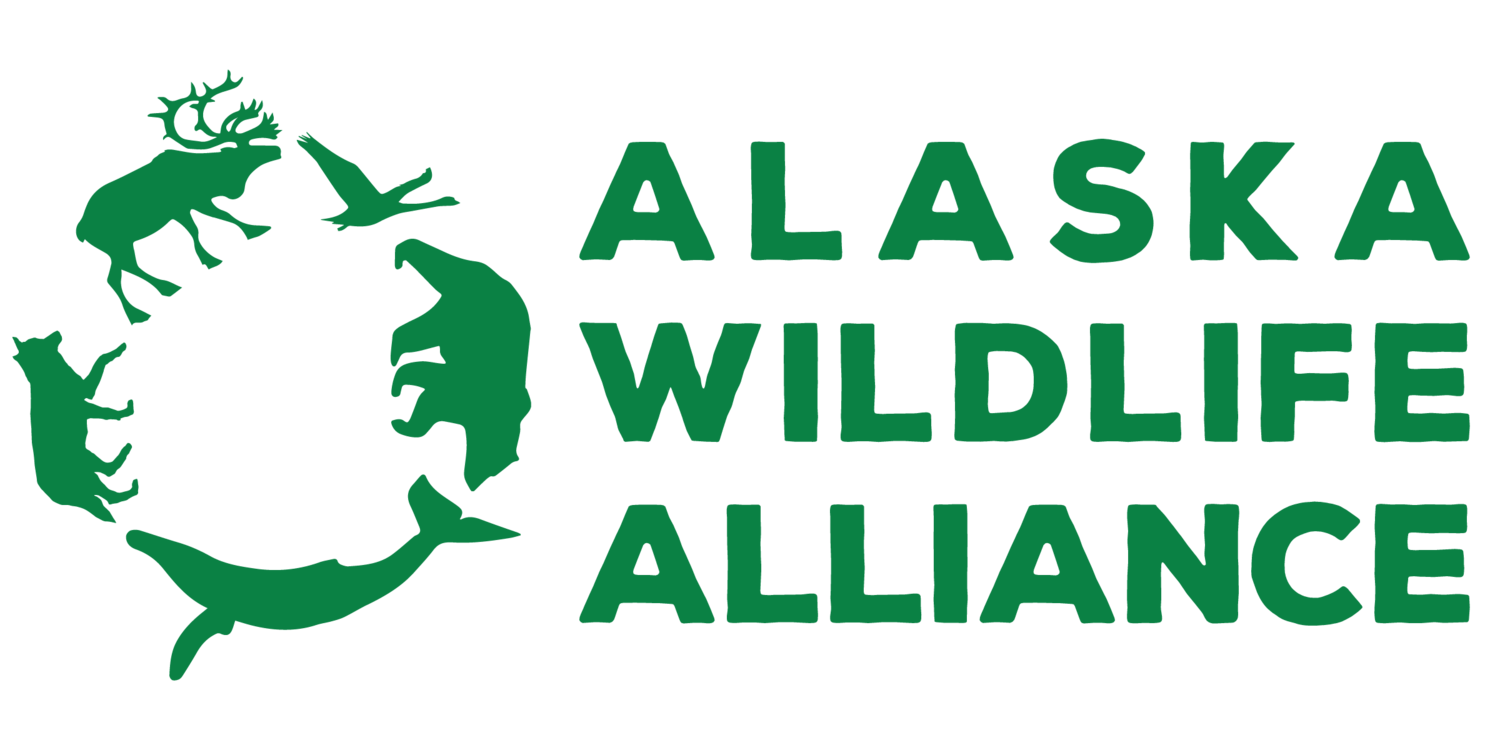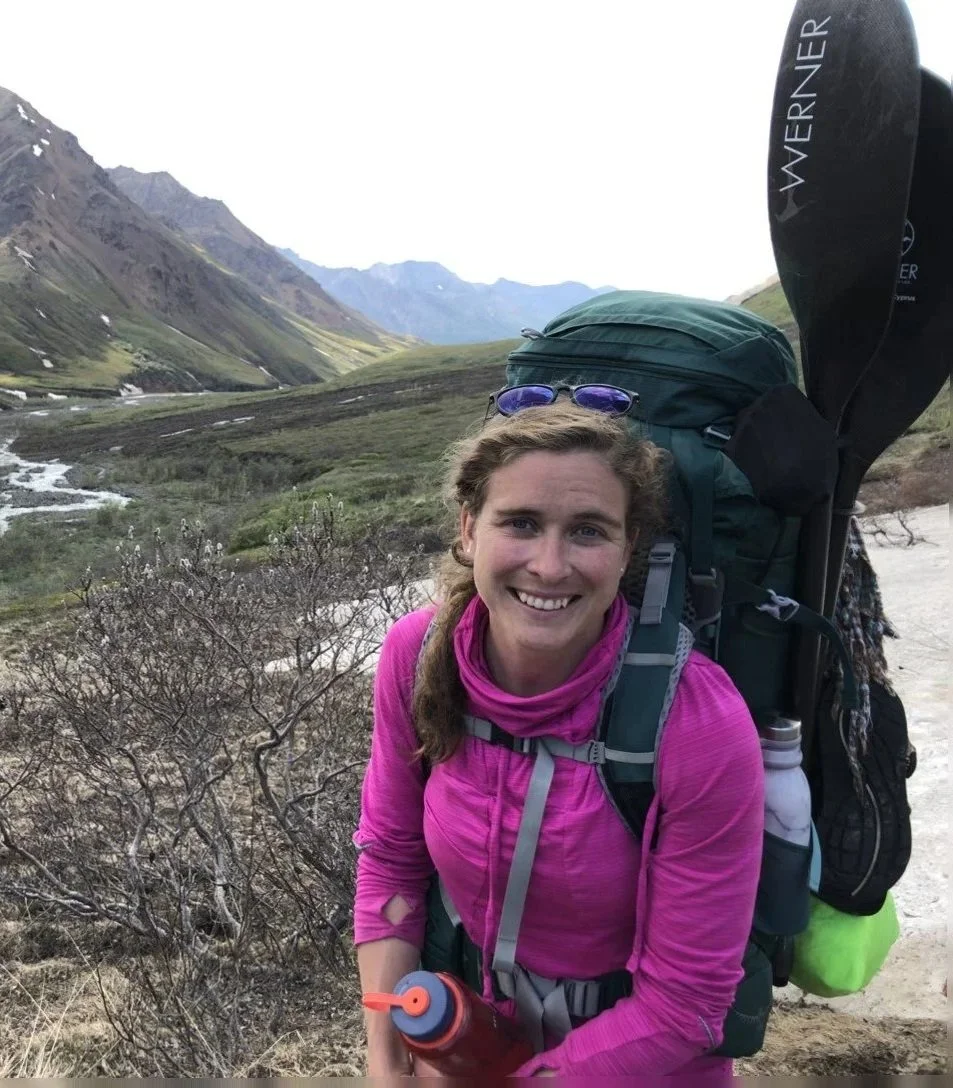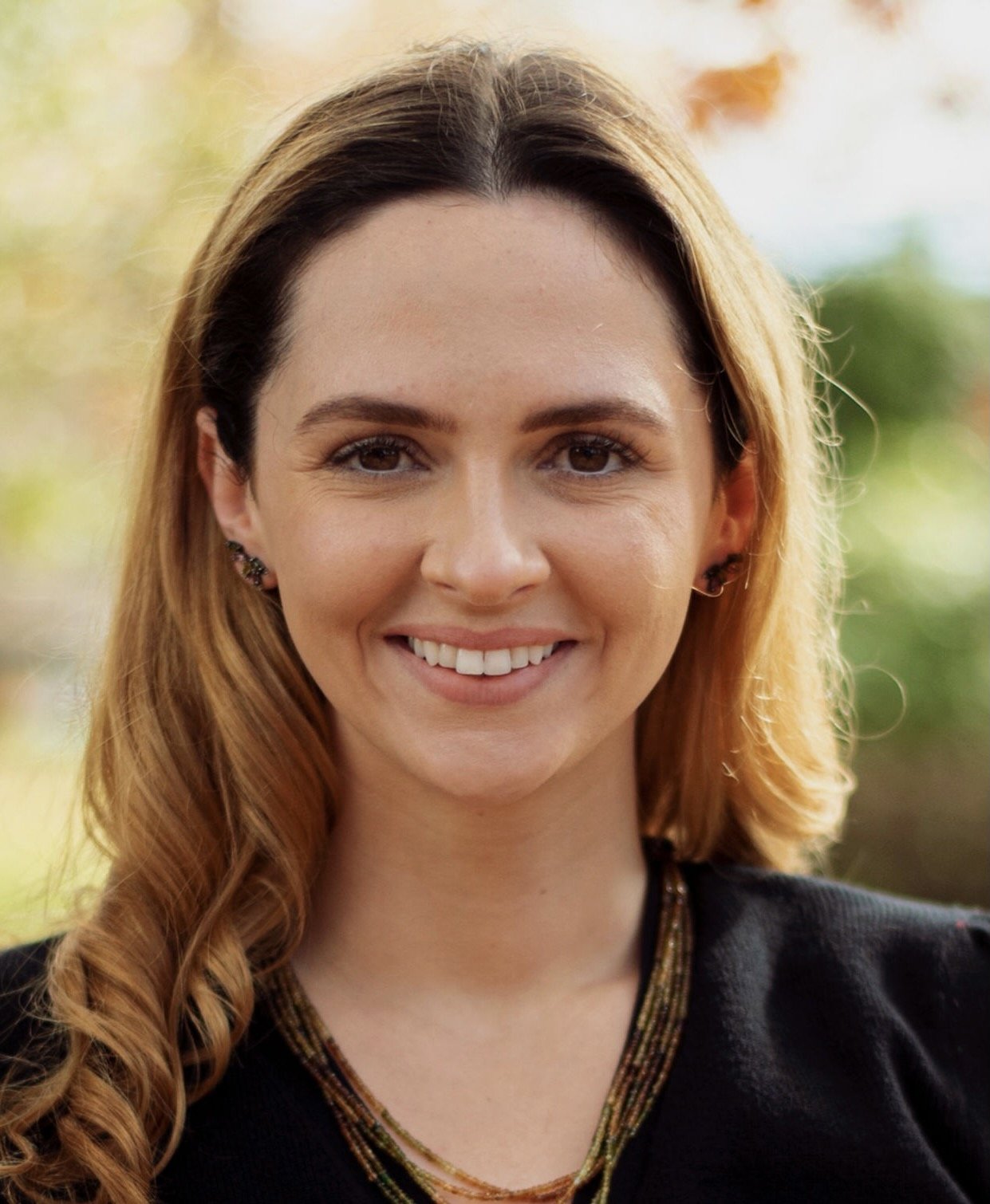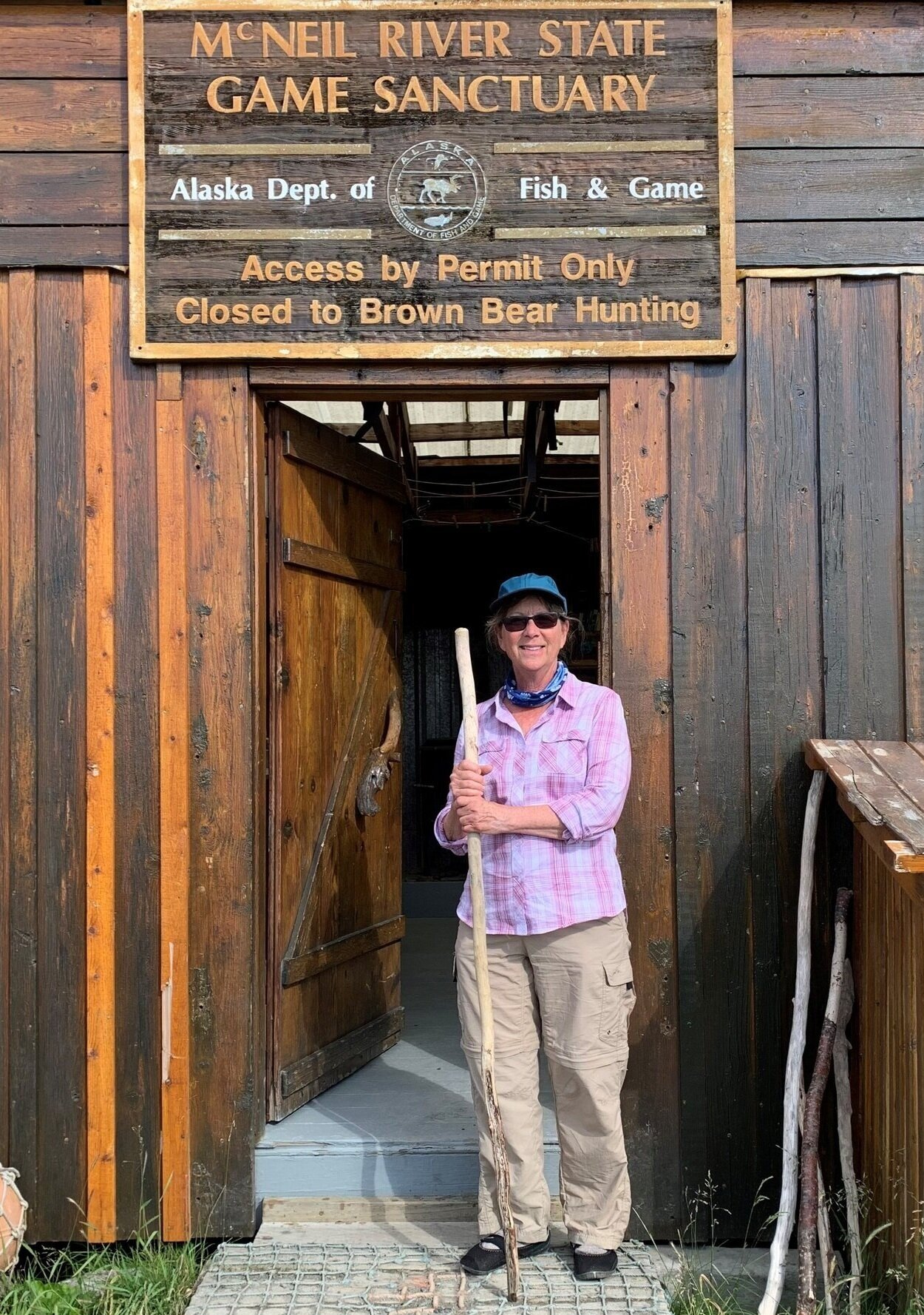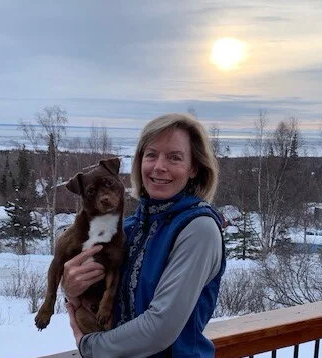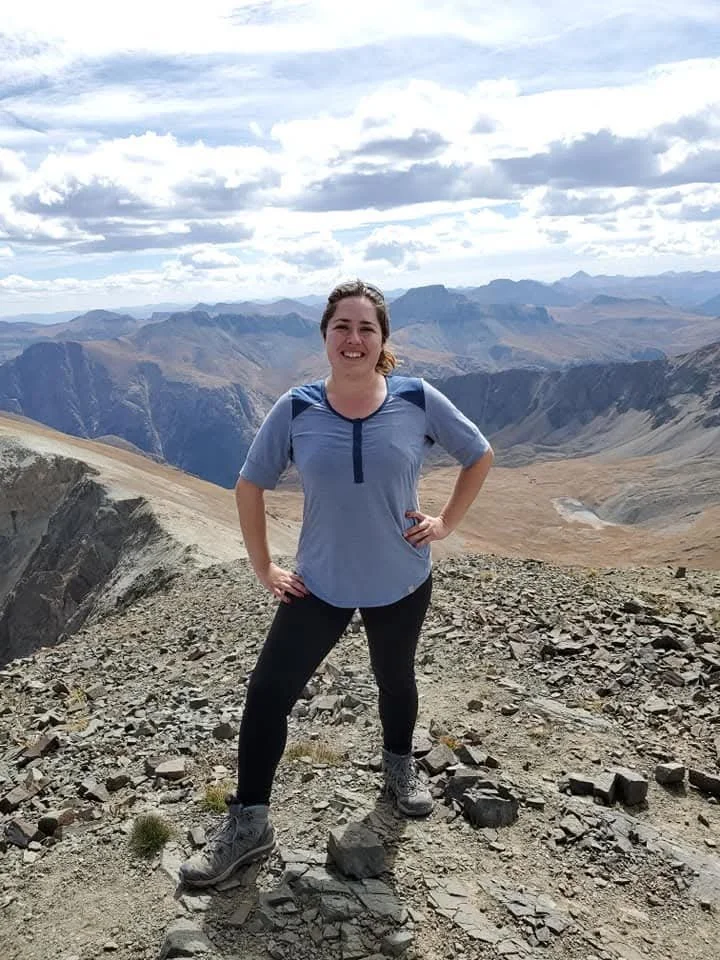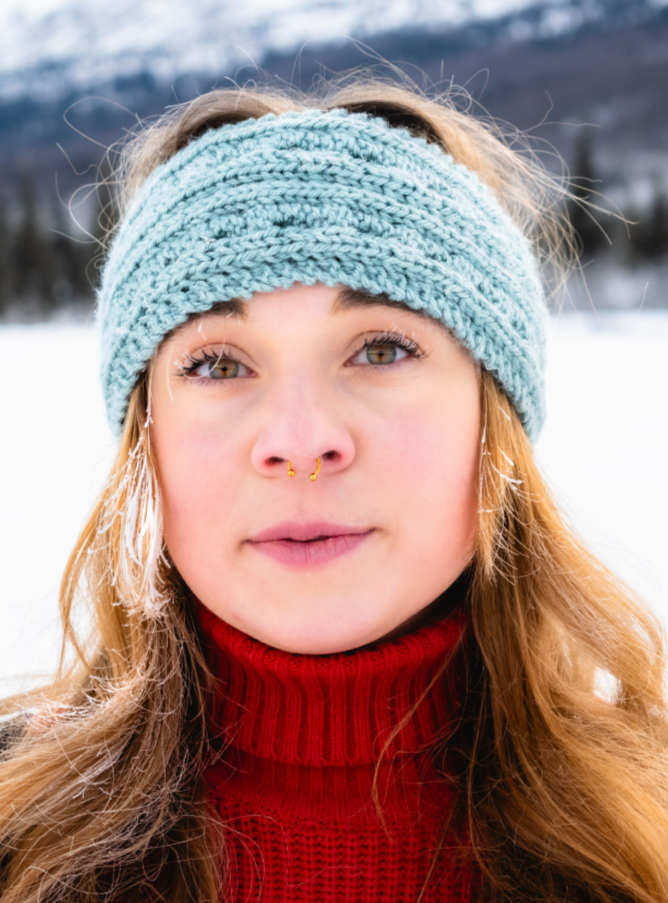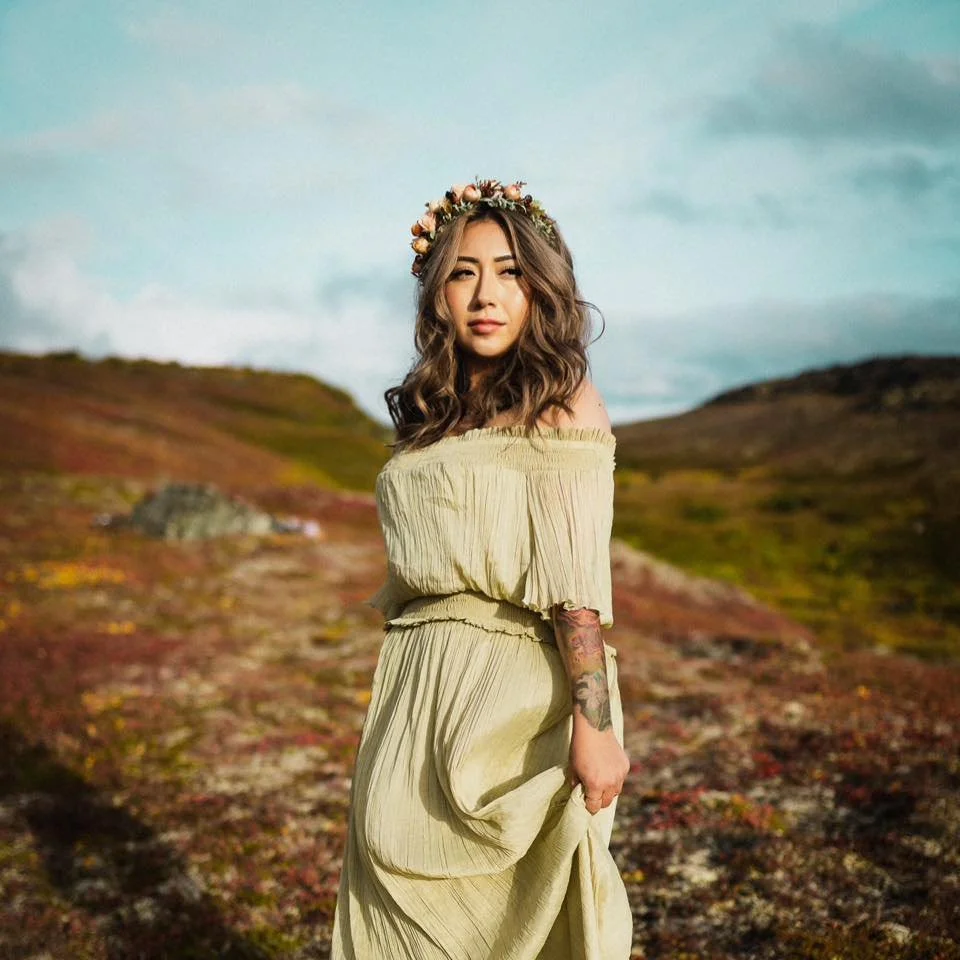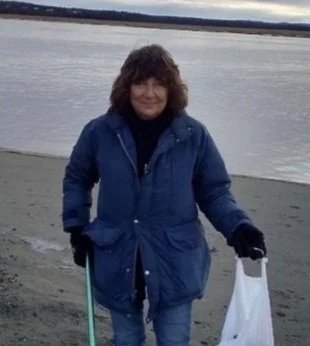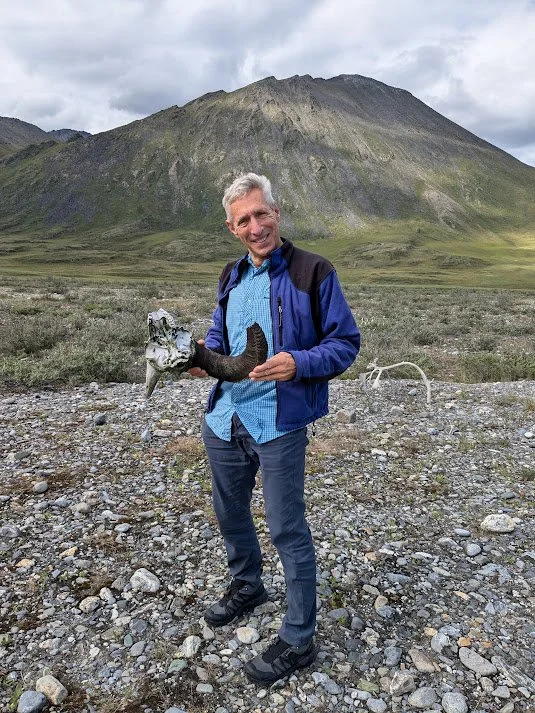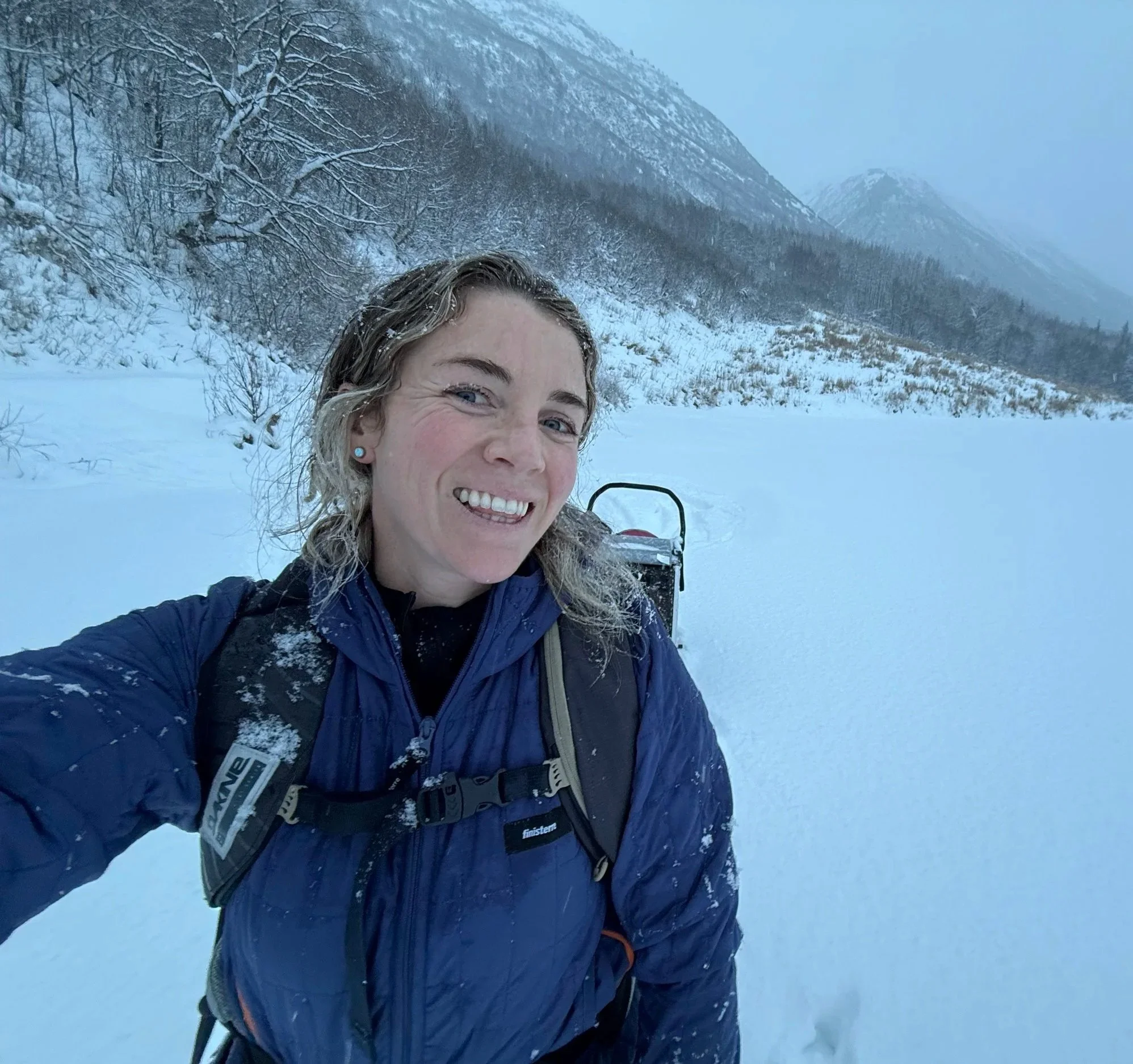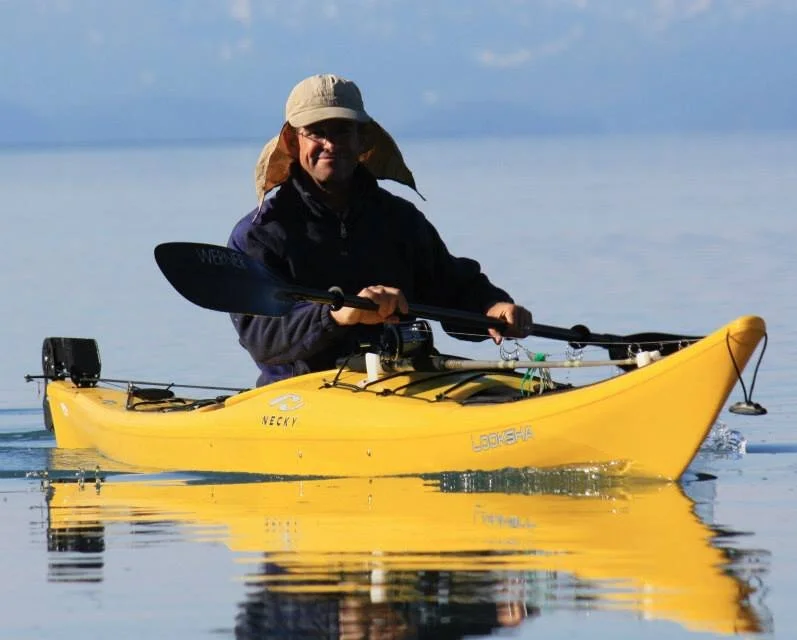Founded in 1978, the Alaska Wildlife Alliance is the oldest grassroots, Alaskan-based group dedicated entirely to the protection of our state’s wildlife.
Meet our Staff
Nicole Schmitt
Executive Director
Nicole has dedicated her professional life to grassroots mobilization and philanthropic administration. Nicole’s interest in Alaska’s wildlife began as a teenager, when she worked on the crew of a salmon setnetting operation in Kasilof, Alaska. She then studied geography and international development at the University of Denver in partnership with Peking University in Beijing, splitting her degrees between the United States and China. After completing her research thesis abroad, Nicole returned to the US to work in research and grants management for various government agencies and nonprofit organizations—including the Kenai National Wildlife Refuge, Yosemite National Park, and the Global Greengrants Fund. Nicole was excited to return to Alaska to exercise her skills for Alaska’s wildlife, and since then has been recognized as an “outstanding young professional” in Alaska’s 2022 Top Forty Under 40 class. When she’s not in the office, Nicole can be found biking, running, kayaking, or climbing across Alaska with her dog, Riley.
Chelsey Cook
Communications Director
Chelsey is an Army vet, mountain guide, and writer who has spent numerous seasons in the Alaska Range, ANWR, and Lake Clark National Park. She has an educational background in anthropology and coastal and marine cultures, as well as a Master’s in Creative Writing. She enjoys writing about the intersection of the outdoors, conservation, and the human experience, and has written for numerous Alaskan organizations and outdoor publications.
Leigh Kirchner
Development Officer
Leigh Kirchner brings a decade of seasoned leadership experience in nonprofit environmental advocacy and development to Alaska Wildlife Alliance. With a background that includes roles such as Advancement Manager and Director of Development and Donor Relations, Leigh has a proven track record in securing funding and managing donor relationships. Leigh is a graduate of Appalachian State University and Virginia Commonwealth University. She is also actively involved in community service, contributing expertise to organizations like Wild Virginia, where she serves on the board of directors.
Kelli Shermeyer
Development Officer
Kelli Shermeyer is a writer and strategist with over a decade of experience across the higher education, nonprofit, and arts/culture sectors. She’s passionate about serving organizations engaged in building more connected, resilient, and creative communities. Kelli holds a PhD from the University of Virginia.
TERESA BECHER
Central Kenai Peninsula Coordinator,
Kenai & Kasilof Beluga Monitoring Coordinator
Teresa is a Natural Sciences student at the University of Alaska with a focus on pre-veterinary medicine. She retired from the California Highway Patrol in 2014 after twenty-five years of service as a peace officer and moved to Soldotna Alaska to start a new life adventure. She loves animals and has spent most of her adult life working with dog and cat rescue groups, in addition to caring for her many pets. Teresa has a previous bachelor’s degree in Government but returned to college to pursue a degree in the sciences. In the last year she has been given the opportunity to monitor beluga whales on the Kenai and Kasilof Rivers through the Alaska Beluga Monitoring Partnership, AWA and the Kenai Peninsula College. When she is not monitoring beluga whales or studying, she is hiking with her dogs, exploring Alaska and traveling.
our Board of Directors
Our Board of Directors brings together a diverse group of individuals united by a deep respect for nature and a passion for conservation. With backgrounds ranging from wildlife biology to environmental science, Indigenous traditional councils to marine conservation, our directors offer a rich mix of experience and insight.
Their varied perspectives help us protect and advocate for Alaska’s wildlife in thoughtful, impactful ways.
Carold damberg
President
In the summer of 1985, Carol volunteered with the Alaska Department of Fish and Game to monitor Dall Sheep in the Alaska Range, Caribou in Prudhoe Bay, and vegetation abundance in the Susitna River Valley. She fulfilled her dream to live in Alaska by moving to Izembek National Wildlife Refuge, where she served as a National Wildlife Refuge System (NWRS) Inventory and Monitoring Biologist for the U. S. Fish and Wildlife Service (Service). In 2015, Carol moved to Anchorage, and ultimately worked as the Service Regional Subsistence Coordinator, facilitating the development of Federal Subsistence regulations and policies relative to the NWRS and Fisheries programs. Recently retired, Carol spent 30 years with the Service working in a diversity of locations as a Biologist (CO, MN), Refuge Manager (AZ, WY, OR), and Regional NWRS Operations Chief (CA). Carol has a Bachelor of Science Degree in Wildlife Management from Colorado State University and a Master’s Degree from Mississippi State University in Wildlife Biology, where she focused on white-tailed deer ecology. Carol and husband Doug enjoy adventuring in Alaska’s great outdoors, gardening, and share a committed passion for wildlife conservation.
.
Carly jensen
Treasurer
Carly Jensen is an Environmental Scientist who completed her Bachelor of Science from Colorado Mesa University in December of 2016. Between seasonal internships and full-time positions, Carly has accumulated over 10 years of professional experience in the environmental field. Before moving to Alaska, she worked as a Team Lead for a multi-disciplinary team of scientists mapping and sampling abandoned Uranium mines primarily throughout the southwestern United States. After a stint of groundwater sampling in Alaska, Carly currently works for the Alaska Department of Environmental Conservation within the Contaminated Sites Program.
Carly has always been passionate about all things outdoors, which has led to a career focusing on the protection of the environment as well as being an avid recreationist. If she isn't busy with setting up her garden or next home improvement project, she can often be found packing up gear for the next hiking, camping, fishing, or backpacking trip.
emily atwood-king
Secretary
Emily was born in Alaska, but at nine years old, her family traded their house for a sailboat and traveled for three years, ending up on the emerald coast of Alabama. She went to high school at Fairhope High, where she met her husband Sam, who she married in Valdez while working at a fish cannery. Emily’s parents raised her in the outdoors, instilling a love of all things natural, and observing and preserving wildlife has been a passion since she was a child.
Emily holds a BA in Biology and Biochemistry, with a minor in Photography from Southern Virginia University. Emily currently works at VCA as a veterinary technician and as a professional wildlife and portrait photographer. She is a freelance videographer and works with the Alaska Wildlife Conservation Center to document the lives of their furry and feathered residents.
In her free time, Emily enjoys scuba diving, kayaking, hiking, traveling, and cuddling her four cats and one dog. Emily also sang with the opera and concert chorale throughout high school and college and competed as a USA boxer on the national level, earning the title of National Golden Gloves Champion and second place in the 2016 Olympic qualifiers.
MICHELLE QUILLIN
I am thrilled to join the Alaska Wildlife Alliance as a new board member. Currently, I work as an Indigenous Knowledge Advocate and Wildlife Specialist for Native Movement, an Alaska-based non-profit organization dedicated to building people power rooted in an Indigenized worldview. Originally from Hut’odlee Kkaakk’et (Hughes, Alaska), a village on the upper Koyukuk River, I now reside in Fairbanks, Alaska, where I am completing my master’s degree in Natural Resources and Environment at the University of Alaska Fairbanks (UAF). I also hold a Bachelor of Science degree in Wildlife Biology and Conservation from UAF.
My upbringing, filled with fishing and camping trips with my parents, fostered a deep connection to nature. As a child, I was always outside, often staying out until dark to watch the night sky. Despite facing many hardships, my connection to the land and waters has been a guiding force in overcoming challenges. The connection between Indigenous people and wildlife needs to be reestablished for the benefit of all. When Indigenous people are forced to deviate from our way of life and our connection to wildlife is fractured, it jeopardizes our wellness and has cumulative negative impacts. It is time for decision-makers to listen to us.
My journey has been about learning to exist in two very different worlds, with the goal of bridging them together. Much of my current efforts focus on advocating for tribal stewardship and incorporating Indigenous knowledge. I am grateful for my western science background and strong traditional ecological knowledge, which provide me with a unique and holistic view of the natural world.
As a researcher, I appreciate the short-term knowledge that western science offers, but Traditional Ecological Knowledge is based on long-term data collection from Indigenous people who not only survived but thrived in these harsh climates for millennia. I am excited to bring my perspective forward in this position, working together as stewards for Alaska’s wildlife while uplifting Indigenous voices.
diane taylor
Diane dedicates much of her time to various nonprofits, from being a part of the Streamwatch program (Kenai Watershed Forum), to monitoring Beluga activity at the mouth of the Kasilof River (Alaska Beluga Monitoring Program), to being part of the Coastal Observation and Seabird Survey Team (COASST) for a portion of the Kasilof Beach.
Her passion for the outdoors is what motivated her to move to Alaska over 40 years ago. She recently retired from a long career as an Administrator and Adjunct Faculty member at Kenai Peninsula College/University of Alaska Anchorage. She holds a B.S. in Psychology from Weber State University, and a M.Ed. from the University of Utah. She and her husband live in Clam Gulch, have two grown sons, are active beekeepers and master gardeners, and enjoy traveling.
BRADFORD GESSNER
Bradford Gessner is a pediatrician and medical epidemiologist who completed his undergraduate training at Dartmouth College, medical school at the University of Florida, pediatric residency at the University of Colorado, preventive medicine residency and Masters of Public Health at the University of Washington, and Epidemic Intelligence Service fellowship with the US CDC in Alaska. For 20 years, he served as the Scientific Director and Chief Scientific Officer with Agence de Medicine Preventive (AMP), in Paris, France and Abidjan, Cote d’lvoire. AMP's mandate was to inform and promote vaccine policy in the world's most impoverished settings, primarily in Africa. His previous board experience includes Gavi, a public-private partnership whose goal is to increase vaccine access in low-income countries. From 2016 to 2019 he worked with Pfizer as the Global Medical Lead for Pneumococcal Vaccines, adding Lyme Vaccine and briefly COVID vaccine in 2020, and since 2021, he has served as the Global Medical Lead for Respiratory Vaccines. He is the author of over 350 peer-reviewed manuscripts from 40 countries. Dr. Gessner has lived in Alaska since 1991 and is an avid mountaineer, whitewater kayaker, skier, and explorer with a firm commitment to the AWA mission of advocating for healthy ecosystems and protecting wildlife for its own sake.
McKenzie Daigle
McKenzie moved from California to Alaska in 2017 and quickly found herself drawn to the landscapes, wildlife and communities that make the state so extraordinary. After early stints in commercial fishing, beekeeping and marketing, she ultimately shifted her career toward work that better aligned with her values, joining the operations team for an adventure travel company focused on responsible wildlife tourism.
Outside of work, McKenzie aims to strike a balance between time outdoors and creative pursuits — running, skiing and hiking alongside quieter hobbies like cooking, reading and lapidary work. She is often accompanied by her toddler and energetic border collie, who keep life both active and grounded.
Ed schmitt
Ed is passionate about preserving habitat for all wildlife in Alaska. Now a retired surgeon and rancher, Ed holds a BS in Molecular Biology and an MD from the University of Colorado. Ed began his involvement in environmental activism with the Colorado Whitewater Association and the Pikes Peak Cattlemen’s Association, advocating for sustainable recreation and animal husbandry. In Alaska, his work with the Kenai Area Fishermen’s Coalition brought him to the Alaska Wildlife Alliance in 2014. If he’s not fishing, you will likely find Ed kayaking, rock climbing, mountain biking, hunting, or skiing somewhere in Alaska’s vast open spaces. Ed hopes that his children and grandchildren will still be able to experience the fish and wildlife that brought him to Alaska in 1987. He lives just outside Soldotna on the Kenai River with his dog, Josephine.
AWA Advisory committee
Our Advisory Committee supports the Board of Directors in areas of strategy and outreach.
Bob Armstrong
Tina M. Brown
Valerie Connor
Nick Jans
Johnny Johnson
Andrew Josephson
Robert Glenn Ketchum
Dune Lankard
Michael McBride
Jenny Pursell
Kathy Sarns
Alex Simon
John Toppenberg
Lowell Thomas Jr. (In Memoriam)
Own or work at a business that supports wildlife? Become a sponsor!
Learn more on our Corporate Sponsorship page.
